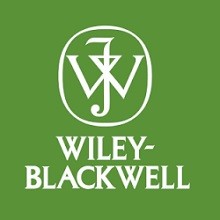
پیشینه حسابرسی بخش دولتی در بریتانیا (انگلستان) و استرالیا
Abstract
1- INTRODUCTION
2- GAP IDENTIFICATION AND RATIONALISATION
3- AUDITOR-GENERAL INDEPENDENCE – THE TELEOLOGICAL DESCRIPTION
4- MODERN CONTEXTUAL ANALYS IS
5- CONCLUDING REMARKS
REFERENCES
Abstract
The introduction of an independent public sector audit function was a critical element in the nineteenth century constitutional reforms of parliamentary and government accountability and created an essential precedent for current practice. By examining the extent of scholarly research on public sector audit history, findings reveal considerable research examined the teleological development of public sector audit and the modern history in a New Public Management context. However, there has been very little published regarding the complex rationales around the origins, development and importance of independent public sector audit notwithstanding that without an appreciation of these precedents it becomes very difficult to protect the Westminster-based system of democratic government.
Introduction
This paper argues that more scholarly attention needs to be given to examining the constitutional place of auditorgeneral independence that developed in Britain during the nineteenth century and which is critical to modern day parliamentary sovereignty. The Westminster-based system of democratic government, relying on a combination of written constitutions and precedent, recognises an independent auditor-general as fundamental to government accountability. Indeed, the independent auditing of the expenditure of public funds is an essential part of constitutional safeguards (Funnell, Cooper, & Lee, 2012; Normanton, 1966). The development trajectory is also important in relation to understanding and protecting part-written constitutions such as that of Australia (Gilchrist & Coulson, 2015). Further, this history is important for educators and policymakers in terms of current public sector audit practice. Without an appreciation of the conditions by which governments function (including precedents relating to the purpose, powers and functioning of public sector auditors), and how they were arrived at, it becomes difficult to protect important controls in constitutional arrangements (Finn, 1987; Pilcher, Gilchrist, Singh, & Singh, 2013). Yet given that the topic of public sector audit, sometimes called state audit, history holds so much precedent for today's practice, it is perhaps surprising that it has received significantly less attention than the related topic of accounting history – an area that has long been a source of interest to scholars.
